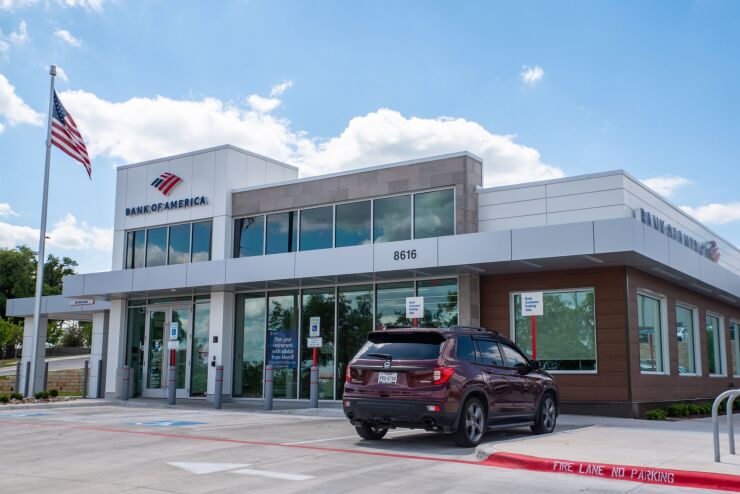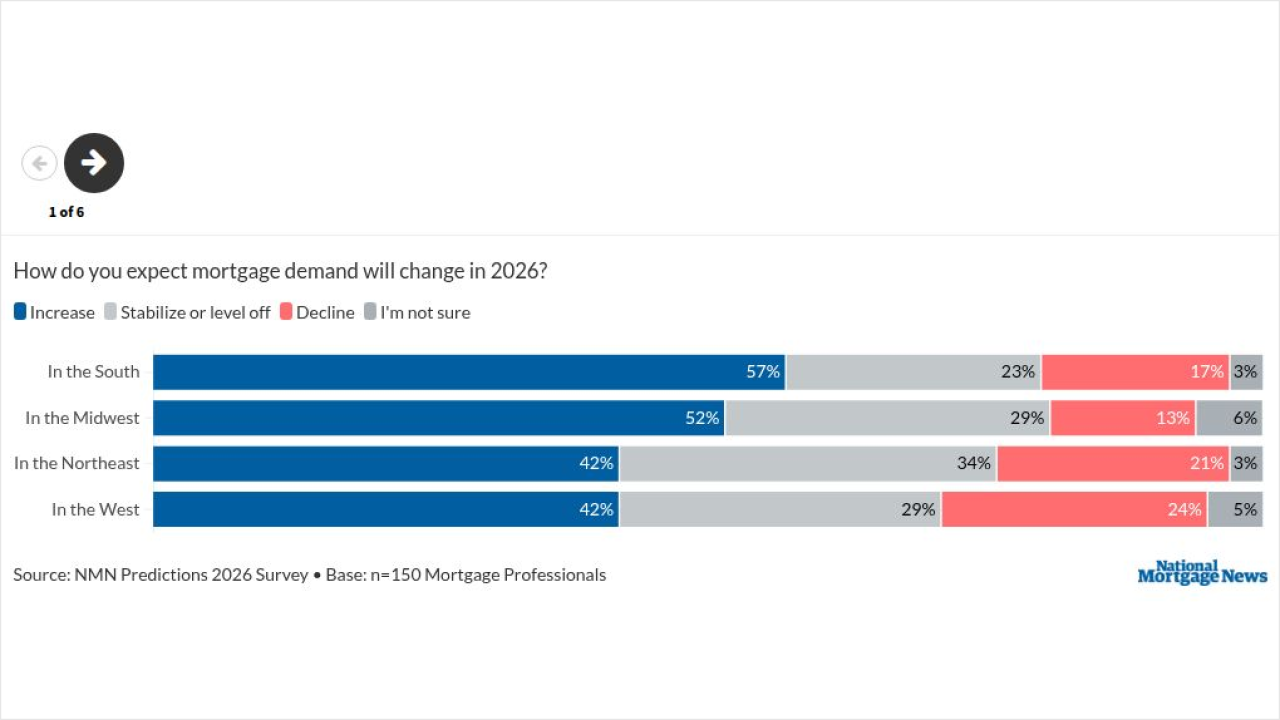
The Consumer Financial Protection Bureau fined Bank of America $12 million for failing to collect the race, ethnicity and sex of mortgage applicants and then reporting to the bureau that the applicants had chosen not to respond.
The CFPB said Tuesday that hundreds of loan officers working for the $3.2 trillion-asset Bank of America had violated the requirements of the Home Mortgage Disclosure Act. Congress passed HMDA in 1975 to gather data on mortgage applicants that could be used to determine if financial institutions were discriminating against potential borrowers.
"It is illegal to report false information to federal regulators, and we will be taking additional steps to ensure that Bank of America stops breaking the law," CFPB Director Rohit Chopra said in a press release. "Bank of America violated a federal law that thousands of mortgage lenders have routinely followed for decades."
In 2020, BofA received a customer complaint and launched a review of its HMDA data-collection practices. The Charlotte, N.C.-based bank found that 113 loan officers
"These and other loan officers were not asking applicants for their race, ethnicity, or sex," the CFPB said in the consent order. "Instead, they were wrongly recording on applications that the applicants chose not to provide the information, which [Bank of America] then reported to the government each year."
A BofA spokesman said that the bank collected the data on 99% of applications in the four-year period reviewed by the CFPB and had lower percentages of applicants who chose not to disclose their race compared to annual industry averages.
"After receiving one complaint in 2020, we conducted a review and notified the government, which prompted this inquiry," said Bill Halldin, the BofA spokesman. "As the CFPB notes, we took additional steps in 2020 and 2021 to enhance our monitoring and training to ensure employees ask applicants for required racial, ethnic and gender information. This data-collection issue had no impact on applications."
BofA employed more than 4,500 loan officers from 2016 to 2020 and received more than 300,000 mortgage loan applications each year over that span, the CFPB said. About 75% of applications are taken over the phone, with half coming into its distributed lending channel in which loan officers are generally stationed at or near bank branches. Loan officers typically have to read a script of options to customers over the phone. Though financial institutions are required to ask for the information on ethnicity, race and sex, applicants do not have to provide it. A lender still must record and report that the information was not provided by the applicant.
The CFPB said that BofA historically operated with less oversight of loan officers in its distributed channel compared with its centralized channel, in which loans are filtered through a central lending department. The CFPB said that BofA began recording and monitoring calls of loan officers in its centralized channel in 2010, but did not do so for its distributed loan officers until 2021.
However, in 2013 BofA began monitoring the monthly rate at which distributed loan officers selected that mortgage applicants did not want to provide the data. After the monitoring, the rate at which officers recorded and reported that applicants did not provide the data dropped to 6% in early 2016, from 13% in mid-2013. BofA stopped the monitoring in 2016 and by 2020 the rates of information not provided for race and ethnicity had jumped to 17% in the distributed channel, the CFPB said.
The CFPB ordered BofA to provide training for loan officers and other employees on collecting HMDA data, and to provide monthly reports to managers and leadership showing the rates of individual loan officers who did not provide the information from applicants. The bank also must periodically audit phone applications to ensure HMDA data is accurate, the CFPB said.





